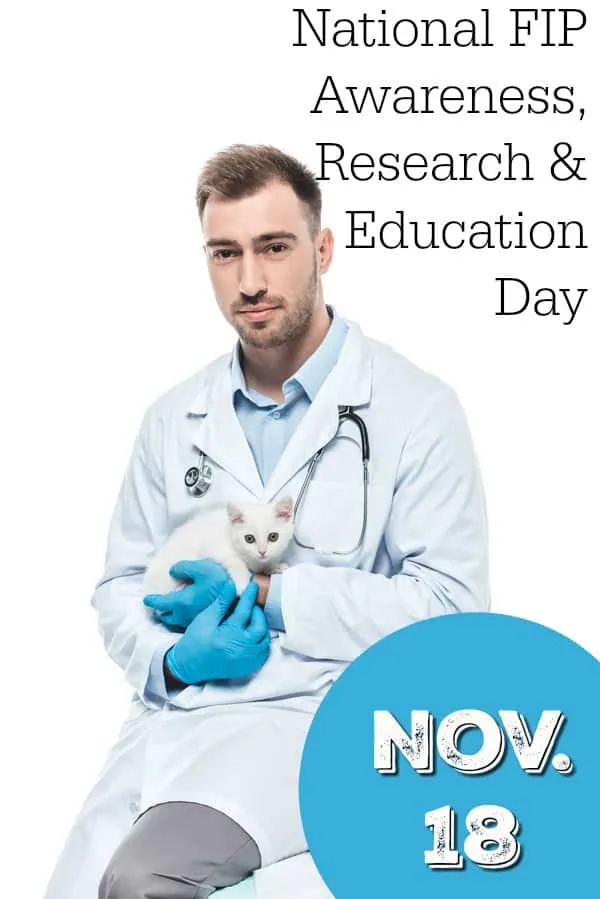Her name was Bria, and she was only nine months old when she crossed Rainbow Bridge in 2005. Although the tiny Birman kitten only enjoyed a short stay on this earth, the memory of her life is helping other cats who have been diagnosed with Feline Infectious Peritonitis or FIP, a disease which is often a death sentence, hold on to the hope for a longer life. In observance of the date when The Bria Fund was formed, November 18 has been declared National FIP Awareness, Research and Education Day.

The Bria Fund
On November 18, 2005, Dr. Susan Little DVM, President of the Winn Feline Foundation at the time, announced the creation of The Bria Fund for FIP Research, an idea brought forth by the late kitten’s loving pet parents, Susan Gingrich and Jim Shurskis.
Since its start, donations of over a half million dollars from animal lovers have funded 26 vital studies from FIP researchers around the globe.
Thanks to continued dedication to the paws cause, today some cats are now living with FIP as a chronic, rather than fatal, disease.
Two clinical trials using anti-viral drugs have offered friends of felines further reason to hope for a better future for cats struck with FIP, with some of the cats in the trial living normal, healthy lives more than two years after the study.
Although not approved or on the market at this time, these drugs and others currently being researched could potentially hold the promise for a better tomorrow for cats diagnosed with this deadly virus.
To find out more about the work of The Winn Feline Foundation and how to make a donation to The Bria Fund’s humane FIP research studies, visit www.winnfelinefoundation.org and www.briafundsupporters.com.
FIP Facts
What is FIP?
FIP, or Feline Infectious Peritonitis, is a mutation of a benign virus found in the intestines of most cats. Symptoms of FIP includes lethargy, loss of appetite, anorexia, fever, and a buildup of fluid.
There are two strains of FIP: a “dry” form and a “wet” form, which results in sudden fluid build up in the cat’s chest or abdomen.
Which cats are at risk of contracting FIP?
Feline Infectious Peritonitis is most prevalent among kittens and young adult cats under the age of three, although any cat battling a weakened immune system or living among other cats can be susceptible to infection.
How does a cat become infected with FIP?
The coronavirus can be transmitted through both the saliva and feces of an infected cat.
However, it must be noted that the majority of all cats have been exposed to a non-lethal version of the coronavirus in their lifetime and many do not become infected with FIP.
Also, after the coronavirus mutates (bringing the onset of FIP), the virus will not spread to other cats.
More Pet Holidays
See our Cat Holidays and Special Observances calendar for more special awareness days such as:
National Take Your Cat to the Vet Day
National Pet Obesity Awareness Day
- Tyler Bass Fans Donate to Cat Adoption Group - January 24, 2024
- Saint Gertrude of Nivelles, Patron Saint of Cats - January 19, 2024
- Offensive Tackle Daniel Faalele’s Defensive Play for Animal Rights - December 27, 2023
